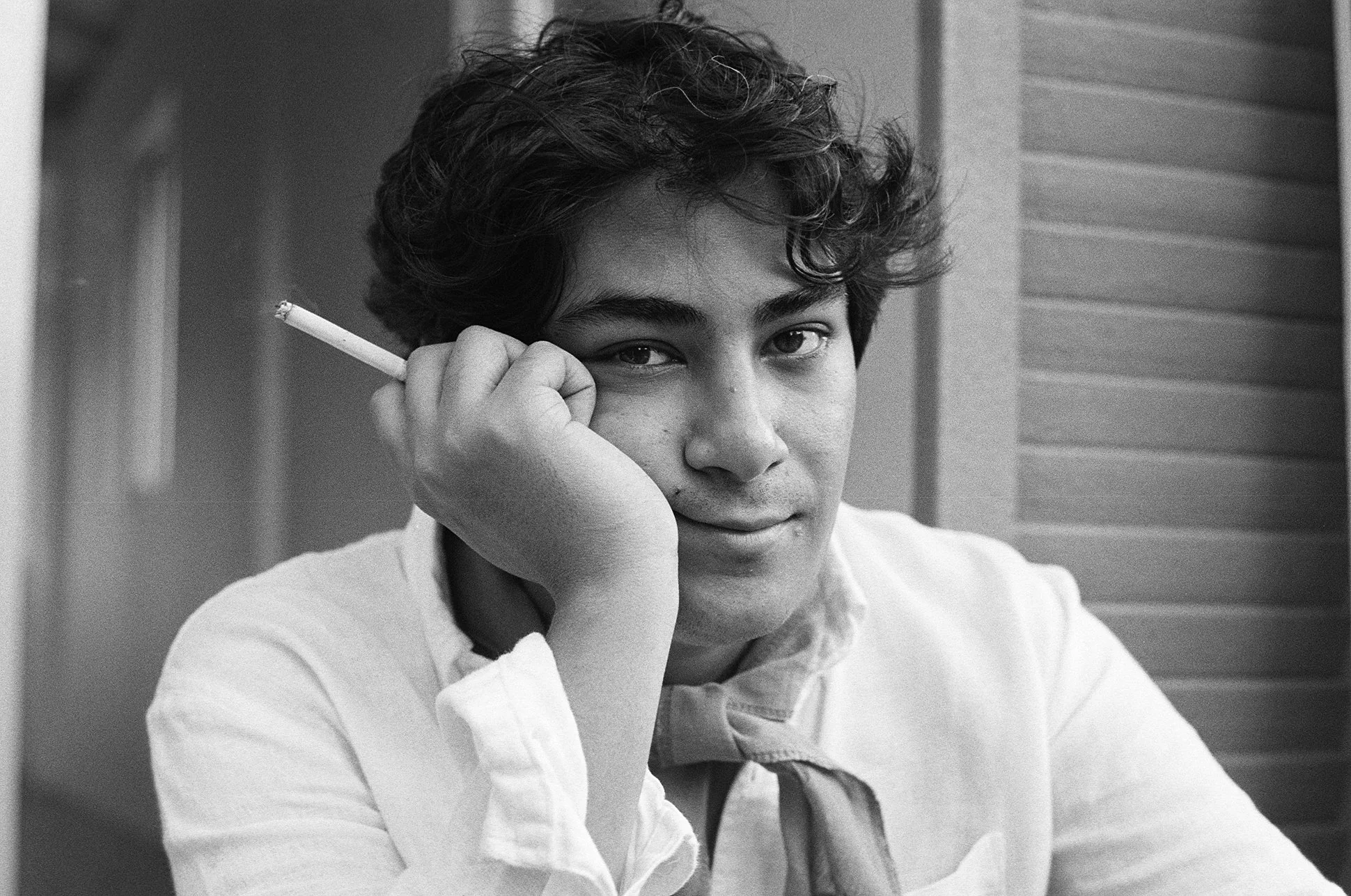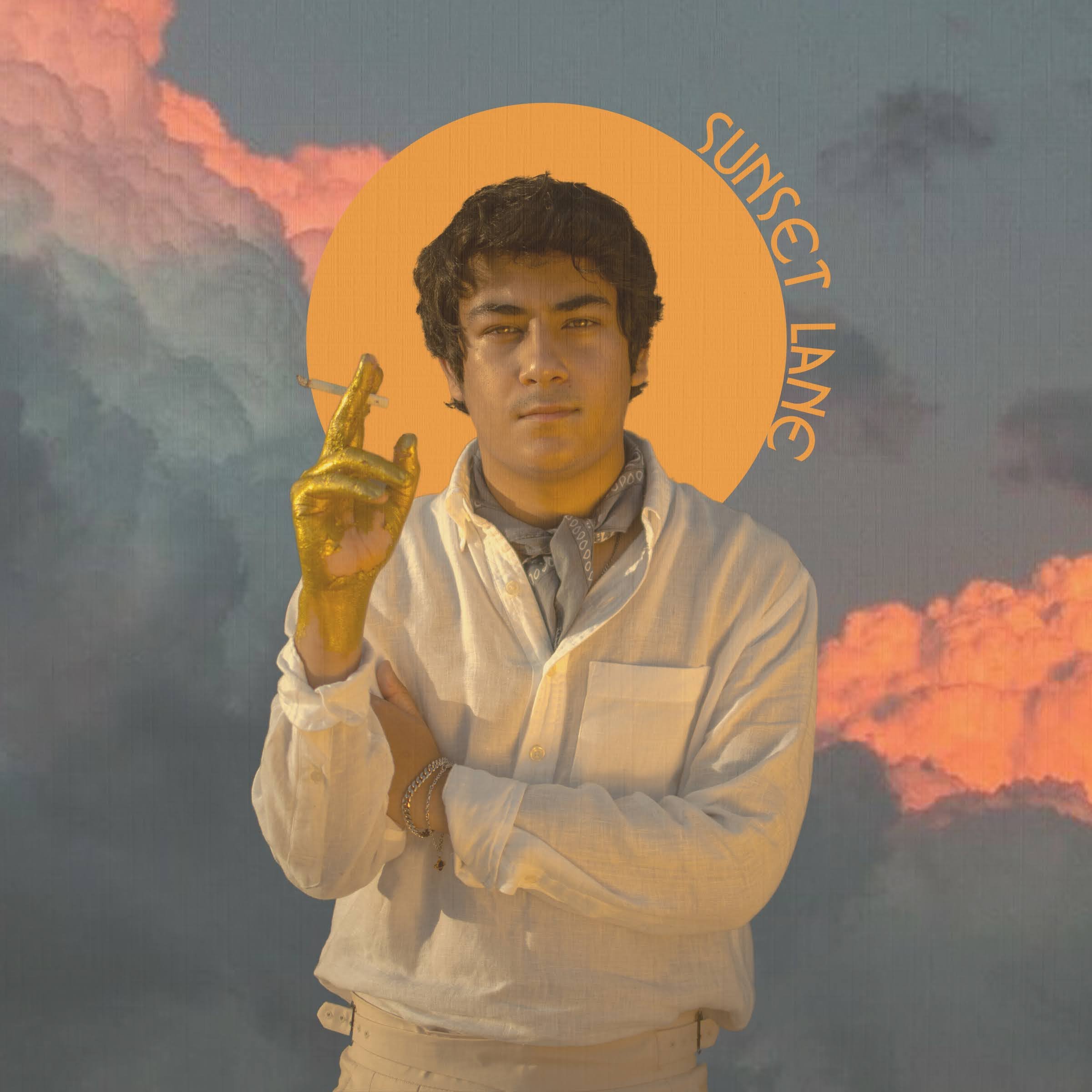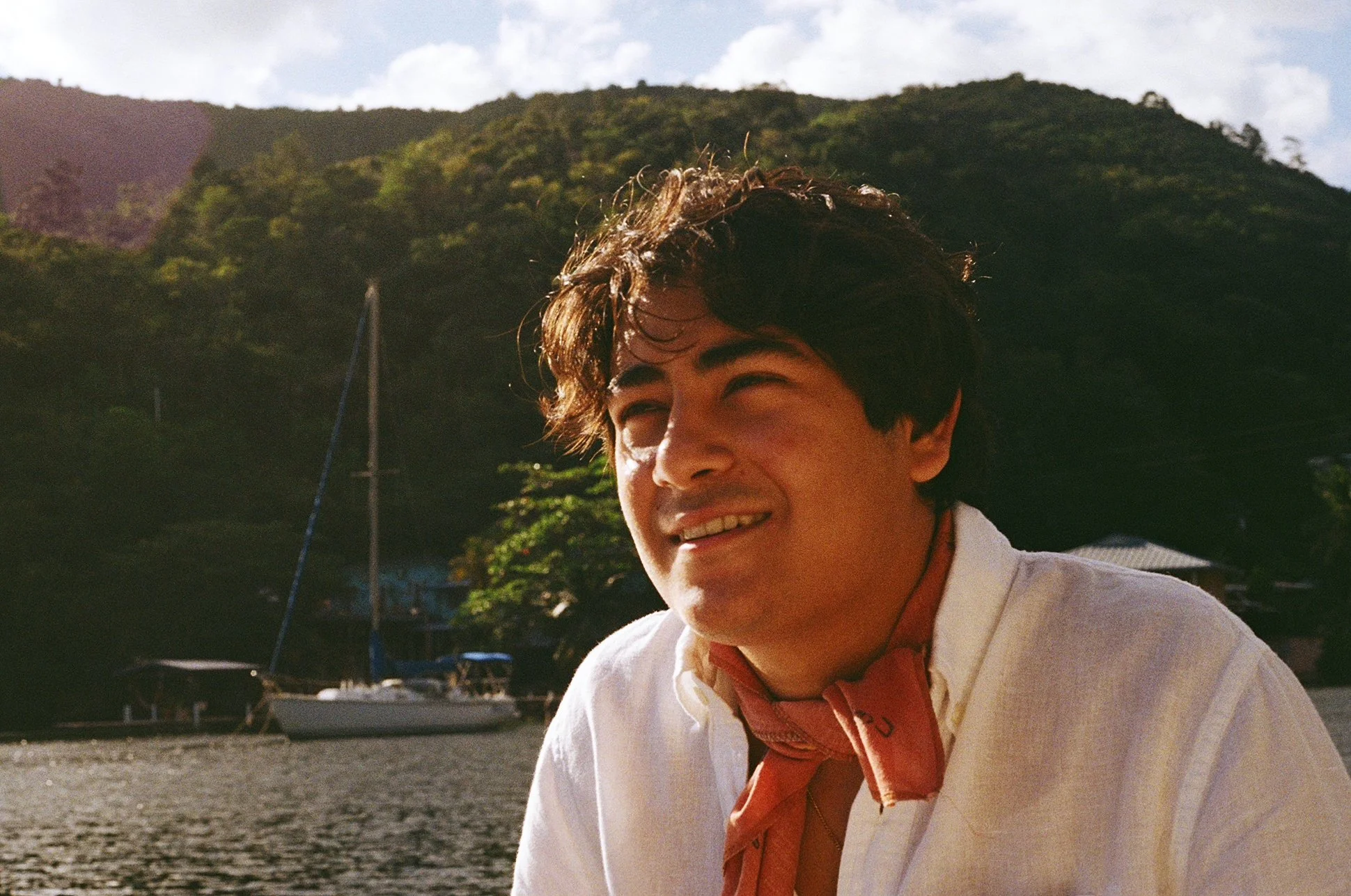Harmonising Traditions: An Interview with Viren Neel.
Viren Neel, a Trinidadian pop singer with an inclination for folk rock, has emerged as a rising star. As a young man in a highly competitive industry, Viren has carved out a distinctive niche in a music scene predominantly focused on Soca and Dancehall music.
His music encompasses the use of the guitar {Acoustic & Bass}, soul-stirring vocals, brass, and captivating lyrics to create a harmonious melody that takes centre stage. Listening to Viren’s music evokes a complex mix of emotions, as his sound weaves a tapestry of love, adventure, and nostalgia, taking the audience on a thrilling, heartwarming journey.
By pushing the boundaries of conventional genres, Viren challenges old traditions and brings a refreshing and dynamic energy to the music scene in Trinidad and Tobago. His willingness to experiment and break free from tradition has also been reaping benefits, as exemplified by the recent success of his song “Runaway Lovers,” which has surpassed 100,000 streams on Spotify.
Viren’s determination also opens doors to new possibilities, captivating audiences and helping to pave the way for change in Trinidad’s music industry. In this exclusive interview, we delve into Viren’s upbringing and musical journey, exploring the origins of his passion and the influences that have shaped his sound.
“Without deviation from the norm, progress is not possible”
Before getting into this Interview, we want to take it back to the very beginning. Can you share with us a bit about your upbringing and what was a pivotal moment in your formative years?
Viren: I think I had a pretty “standard” upbringing. I come from a middle-class background, born and raised in the East, in a nuclear family. My parents were always very supportive of my passions but were also very stern and wanted me to prioritise my academics.
I attended Hillview College. What I liked about my school is that while it was pretty homogenous in terms of its demographic, it still gave me exposure to a decent cross-section of varying Trinidadian cultures and socioeconomic backgrounds which I think helped in bettering my understanding of the world and its application to my writing.
How did your experiences and cultural background influence your decision to get into music?
Viren: Not that I grew up in a musical household, but music has always been a focal point of my life. I’m ashamed to admit it, but I think the idea of stardom propelled me to learn my first instrument when I was 4 years old. It started with the Dholak, given my Indo-Trinidadian background, then piano, then my greatest love, the guitar, at 10 years old.
After years of the guitar, being in a rock band for a bit, and covering performances here and there, I think age, experience, maturity, lots of change, and bouts of sadness pushed me into the direction of writing my music. That’s what I consider to be the actual beginning of my career as an artist.
How would you describe the role of music in your life, and how has it impacted you personally and creatively?
Viren: I’ve done it for so long that I find myself taking it for granted a lot. It’s really second nature, it’s a deep breath in and a deep breath out. It’s downright therapy I come to find at times but let me not take it for granted here, I really appreciate that it is something I can do and I’d like to think, do it well.
I’ve always been drawn to creative endeavours, from dabbling in filmmaking, entrepreneurship, brand development, and well of course, building these little worlds you can find in my songs.
Looking back on your formative years, what genres or artists did you find yourself gravitating towards and how did they shape your musical taste and style?
Viren: I like to always say, my songs are built on the backs of every song that came before mine. While it’s obvious to those who know my music that I take a lot of inspiration from 60’s and 70’s rock, soul, blues, and folk, you can find slivers of reggae in it as well, a broken off piece of a Vybz Kartel melody or guitar and vocal runs similar to Indian classical music.
Some artists I’ve always adored are Nina Simone, The Doors, Black Sabbath, Sammy Davis Jr., Bob Dylan, Peter Tosh, Chronixx, Vybz Kartel, and Lana Del Rey.
How do you stay true to your Trinidadian heritage while fusing genres like rock and pop?
Viren: It’s hard sometimes especially in staying true to the accent. While I try my best to maintain at least my Trinidadian standard English, the genres I sing, not being Trinidadian in origin, sometimes demand that I alter my voice to suit.
What I have been doing on occasion is trying to incorporate unique Trinidadian experiences into my writing. Songs like “My Scarlet Ibis,” “Sunset Lane,” or some of my early songs like “Home” and “The Question as Old as Time” will show this.
Can you tell us about a specific song of yours that best exemplifies the fusion of folk, rock, and pop elements, and what makes it stand out to you?
Viren: Definitely Runaway Lovers. It’s by definition a folk song, at least when you hear me play it strictly on my acoustic guitar. The direction we took with the great Soca producer, Sheriff, was to modernize it a bit thus incorporating more rock and pop elements.
I was against it in the beginning as I’m quite conservative in those regards, but I bit the bullet and lent my faith to Sheriff’s proven abilities and now it’s my biggest song to date. What I think is the selling point is that it’s written like a 60-year-old song but produced with a modern twist.
Being a singer from Trinidad and Tobago, do you ever feel pressured to chase and adapt to trends?
Viren: Sometimes, but I never pursue it. I just write what I like and sometimes it’ll stick in the moment or it wouldn’t. I think “Amalfi Coast” was quite appropriate for the Summer of ‘21. It felt like a very surf-rocky Summer.
Trends will come and go, I hope that whichever of my songs suits that moment will have its turn to bask in the light.
As a singer with a unique musical style, are there any artists, either from Trinidad and Tobago or internationally, that you would love to collaborate with in the future?
Viren: There are so many I’d love to collaborate with but I’ve always thought Lana Del Rey and I can be a good sonic balance in a song if we did one together. Khruangbin would be pretty cool as well. I love what they did with Leon Bridges.
Locally, I don’t know how we would fit in the traditional sense of a collaboration but maybe I can do some writing for them. Kes, Coutain, and Jimmy October are some big ones for me.
How do you see your music evolving in the future while maintaining its essence? Are there any new directions or experiments you are eager to explore?
Viren: I would love to explore reggae more. In fact, we’re working on some tracks with some experienced local and regional reggae producers right now. However, the catch is that I sing 60’s style soul over them in my natural voice. Could be a cool twist.
As we come to the end of this interview, what message or feeling do you hope to leave with your audience through your music, and what do you aspire to achieve in your musical journey moving forward?
Viren: For the people, I say just create something, don’t judge it, and create something else. Over and over again.
For me, I just want self-fulfillment and to grace as many ears as I humanly can.
Viren’s story serves as a solid reminder that forging new ground is a necessity in a world that constantly craves change. With his genre-defying sound, Viren is not just here to challenge the status quo but to set it ablaze.
To the individuals passionate about music, the team at Preshaa hopes that this interview inspires you all to follow your heart, make the music you love, and challenge the norms within our beautiful twin island.
Be sure to follow Viren on Instagram to stay connected with his latest updates and upcoming projects. For those that want to experience his music in its full glory, be sure to check him out on all the major streaming platforms.



